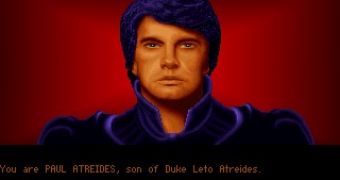Ever wondered why so many great movies of the past are rarely now on television? Why you never see Oscar features from the '50s or '60s anywhere? Mostly, it's because of the bad technical shape in which those movies are. Up until digital technology became available, movies tended to lose quality rather fast and they needed to be constantly copied to survive. As interest in some titles disappeared, they were left to disintegrate, or worse, some movies were destroyed. Only recently have efforts began to digitize entire movie archives to ensure that movies can be preserved for the future.
Games are in a much worse situation than movies. Most titles that were widely available in the '90s are now virtually impossible to get hold off. Try going out and buying the first Dune game, the RPG/RTS hybrid and not the latter to come Dune II RTS. There's a very slim chance of finding a working copy. Games are disposable. When they no longer generate profit, they tend to no longer receive support and that usually leads to them disappearing altogether. Sometimes it's hard to find the specific hardware on which to run a game. Sometimes, the developers of the game, be they firms or individuals, no longer exist. So, the danger exists that future gamers will not be able to find and play games that will be listed in game history as great innovations.
There's an initiative aiming to change this. It is funded by the Library of the Congress of the USA and four major American universities serve as partners. Their goal is to locate games and virtual worlds that are in danger of extinction and, then, preserve them and their informational package. That means preserving the game with whatever data and program are relevant to it, so that a future user can appreciate the entire work in its original context. So, there might be a chance that our grandchildren will enjoy GTA, Red Alert or World of Warcraft as much as we did.
There's more information on the Digital Preservation initiative to be found here and here.

 14 DAY TRIAL //
14 DAY TRIAL //